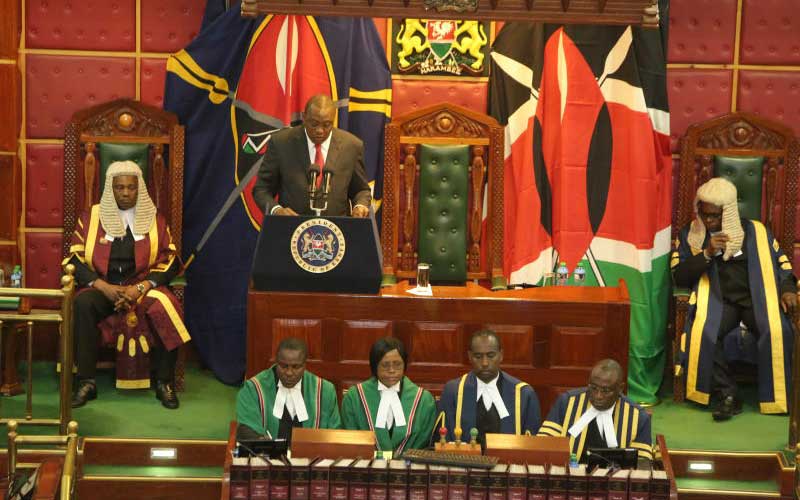×
The Standard e-Paper
Home To Bold Columnists

President Uhuru Kenyatta delivers the 2019 State of the Nation Address at Parliament, Nairobi. [File, Standard]
President Uhuru Kenyatta has made his second-last State of the Nation address before a joint sitting of the National Assembly and Senate against a background of gripping national challenges that have recast his priorities.